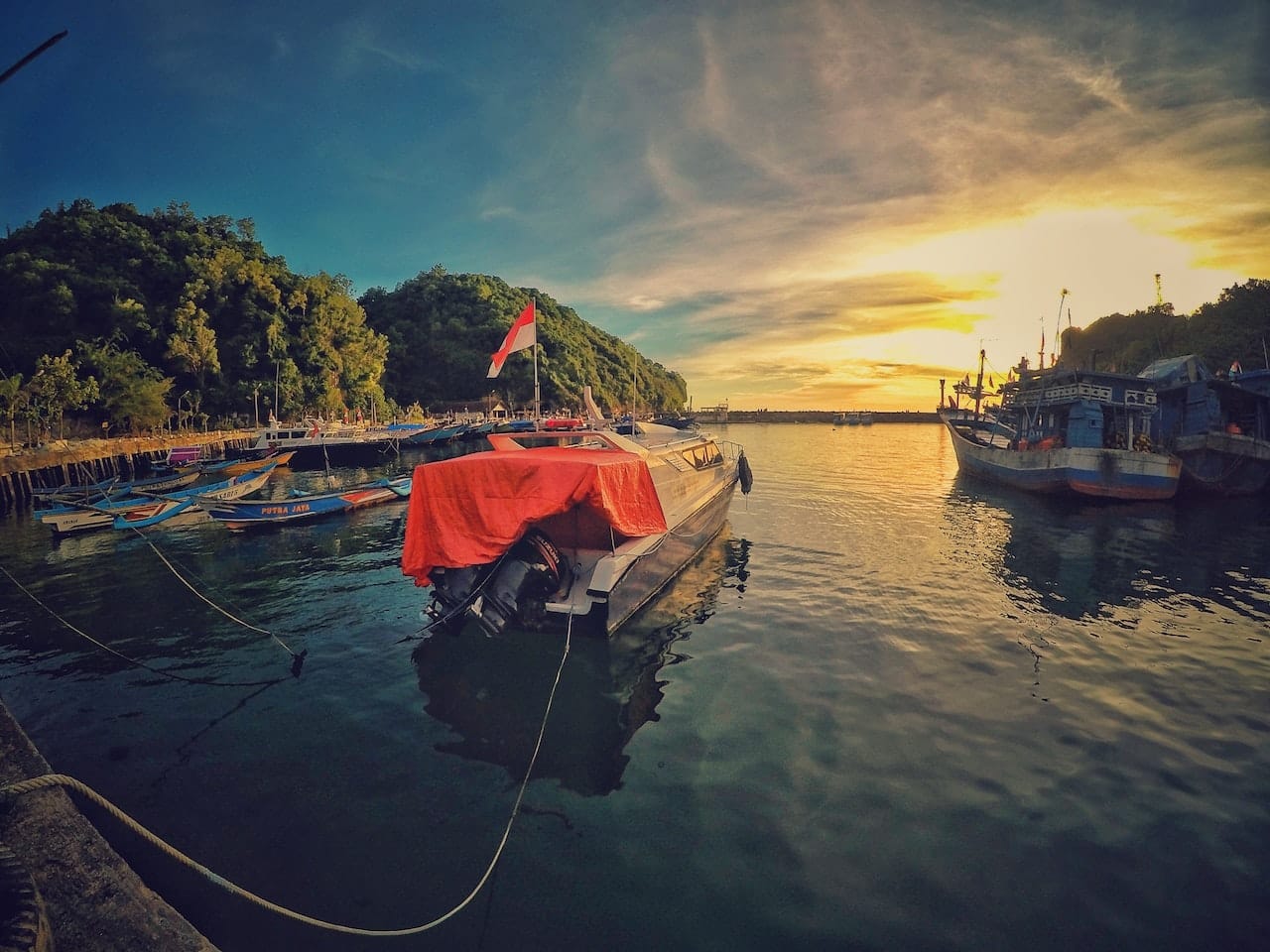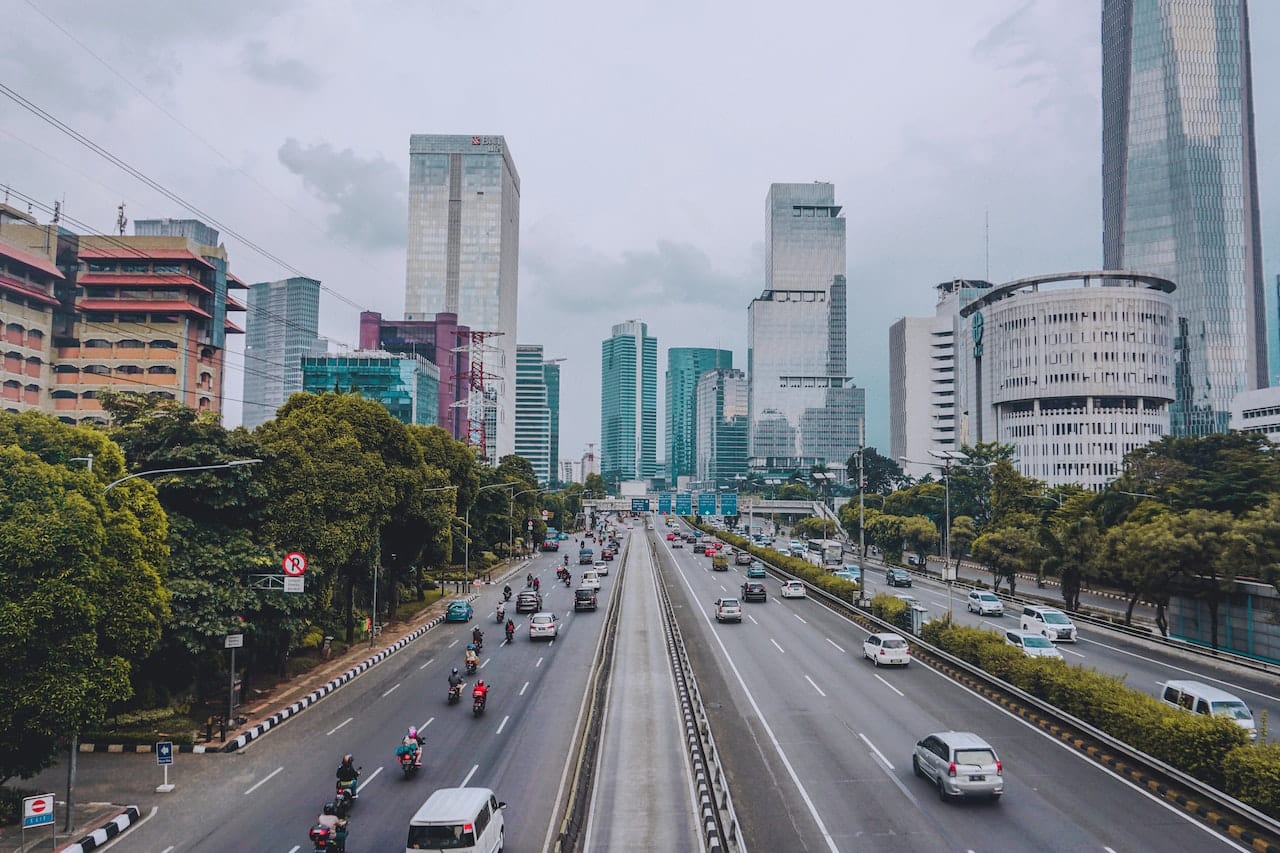Welcome to the fascinating world of Indonesia, where the vibrant culture, breathtaking landscapes, and dynamic economy come together to create a unique and exciting experience.
If you want to learn about the factors that shape Indonesia's business environment, you've come to the right place.
Since we will be conducting an Indonesia PESTLE Analysis, exploring the political, economic, social, legal, technological, and environmental factors that affect the country's growth and development.
Whether you're an investor, entrepreneur, or simply curious about the world around you, this analysis will surely provide valuable insights into one of the most dynamic and promising markets in the Asia-Pacific region. So sit back, relax, and prepare to discover the key drivers of Indonesia's success.

Indonesia has a rich and diverse history that spans thousands of years. The earliest evidence of human habitation in Indonesia dates back to around 44,000 years ago.
Over the centuries, Indonesia has been shaped by a complex web of cultural, political, and economic influences, from ancient maritime trade networks to the arrival of European colonists in the 16th century.
One of the most significant periods in Indonesia's history was the rise of the Hindu and Buddhist empires, which began around 375 AD. These empires, which included the Srivijaya and Majapahit kingdoms, left an indelible mark on Indonesia's culture, art, and architecture.
In the 16th century, Indonesia was colonized by the Dutch, who established the Dutch East India Company and began exploiting the country's rich natural resources. Indonesia remained under Dutch colonial rule for over 300 years until the Japanese occupied the country during World War II.
Following the war, Indonesia declared independence in 1945, and a long and often turbulent period of nation-building began. The country was ruled by President Sukarno from 1945 to 1967, during which time he promoted a nationalist and socialist agenda.
In 1967, however, Sukarno was overthrown in a military coup, and General Suharto took power.
Under Suharto's New Order regime, Indonesia experienced rapid economic growth and modernization. However, the new rule also brought widespread corruption, political repression, and human rights abuses.
In 1998, Suharto was forced to step down, which caused widespread protests and riots, ushering in a new era of democracy and reform.
Today, Indonesia is the world's fourth most populous country and the largest economy in Southeast Asia. It is a vibrant, diverse nation with a rich cultural heritage and a bright future.
Now that we are done discussing the history of Indonesia over the years, let's briefly talk about what PESTLE analysis is. PESTLE Analysis is a tool to analyze the external factors that impact businesses.
Now that you know the purpose of PEST analysis, let's proceed further and conduct Indonesia's PESTLE analysis to highlight what external factors impact the operations of businesses in Indonesia.

Political Factors That Affect Indonesia
In a PESTLE analysis, political factors refer to the policies, regulations, and stability of the government and the level of corruption and bureaucracy in the country.
One of the key political factors that affect businesses in Indonesia is the stability of the government. Indonesia is a democratic country with a presidential system of government. Still, it has a history of political instability and coups.
This instability can create uncertainty for businesses, especially foreign investors, who may hesitate to commit resources to a country with an uncertain political future.
Another political factor that affects businesses in Indonesia is the level of corruption and bureaucracy. Corruption is a significant problem in Indonesia, which makes it difficult for businesses to operate efficiently and profitably.
Bureaucracy is also a challenge, with complex regulations and procedures that can slow down business operations and make obtaining necessary permits and licenses difficult.
Government policies and regulations can also significantly impact businesses in Indonesia. For example, the government has recently implemented a series of economic reforms to improve the country's business climate and attract foreign investment.
These reforms include introducing a new tax amnesty program, streamlining business registration procedures, and easing restrictions on foreign investment in key sectors of the economy.

Economic Factors That Affect Indonesia
Indonesia is the largest economy in Southeast Asia, with a vibrant and diverse business landscape. However, several economic factors can affect businesses operating in the country.
In a PESTLE analysis, economic factors refer to macroeconomic conditions, including trends in inflation, exchange rates, and economic growth.
One of the significant economic factors that affect businesses in Indonesia is the country's economic growth rate. Indonesia has experienced strong economic growth in recent years, primarily driven by rising domestic consumption and investment.
This growth has created significant business opportunities in various sectors, from retail and consumer goods to infrastructure and construction.
However, economic growth in Indonesia has been uneven, with significant differences between urban and rural areas and between different regions of the country.
This can create challenges for businesses expanding their operations outside major urban centers. Another important economic factor that affects businesses in Indonesia is inflation.
Inflation can significantly impact the cost of doing business and consumer purchasing power. While inflation in Indonesia has been relatively low in recent years, it remains a concern for businesses and investors.
Exchange rates are another economic factor that can affect businesses in Indonesia. Fluctuations in exchange rates can impact the cost of importing and exporting goods and the value of foreign investments.
The Indonesian rupiah has been relatively stable in recent years. Still, businesses must remain vigilant to any changes impacting their bottom line.
Government policies related to taxation, trade, and investment are also important economic factors that can impact businesses in Indonesia. For example, Indonesia has implemented various economic reforms in recent years to improve business conditions and attract foreign investment.
These reforms include streamlining business registration procedures, easing restrictions on foreign investment in key sectors, and introducing tax incentives for businesses.

Social Factors That Affect Indonesia
Social factors are an essential aspect of a PESTLE analysis and refer to the cultural and demographic trends that can affect businesses in a particular country.
Indonesia is a diverse country with a rapidly growing population. Several key social factors can impact businesses operating in Indonesia.
Indonesia's large and growing middle class is one of the most significant social factors. As more Indonesians enter the middle class, they become more discerning consumers with higher expectations for quality and service.
This creates business opportunities in various sectors, including retail, hospitality, and consumer goods.
However, Indonesia also has significant income inequality, with many people living in poverty or low incomes. This can create challenges for businesses trying to reach these consumers, particularly in more rural or remote areas.
Cultural factors are also important to analyze in Indonesia, with diverse ethnic and religious groups. For example, Islam is the dominant religion in the country, and businesses must be sensitive to the cultural and religious beliefs of their customers and employees.
For example, many Indonesians prefer halal food products, and businesses that cater to this market have seen significant growth in recent years.
Another important social factor is the country's youthful population. Indonesia has a large and growing population of young people who are increasingly tech-savvy and connected.
This is creating opportunities for businesses in the technology and e-commerce sectors, as well as for businesses that can engage with younger consumers through social media and other digital channels.
Technological Factors That Affect Indonesia
Technology is a key driver of economic growth and business innovation in the current era. In Indonesia, there are several technological factors that can have a significant impact on businesses operating in the country.
One of the key technological factors is the rapid growth of the digital economy in Indonesia. The country has one of the fastest-growing internet user populations in the world, with millions of Indonesians coming online for the first time each year.
This has created significant opportunities for businesses in the technology and e-commerce sectors and businesses that can leverage digital technologies to improve their operations and reach new customers.
However, significant challenges are also associated with the growth of the digital economy in Indonesia. These include data privacy and cybersecurity issues and the need to develop digital infrastructure and skills to support continued growth.
Another important technological factor is the growing use of mobile devices in Indonesia. Smartphones are increasingly the primary way Indonesians access the internet, and businesses that can develop mobile-friendly products and services have a significant advantage in the market.
Other technological factors that can impact businesses in Indonesia include the country's level of technological infrastructure, including the availability of high-speed internet and other digital services.
The government has made significant investments in digital infrastructure in recent years. However, there is still a lot of room for improvement in many parts of the country.

Legal Factors That Affect Indonesia
Legal factors are an important aspect of any PESTLE analysis and refer to the laws, regulations, and legal frameworks that can impact businesses operating in a particular country.
In Indonesia, several legal factors can have a significant impact on businesses. One of the critical legal factors in Indonesia is the country's complex and often opaque regulatory environment.
Businesses operating in Indonesia must navigate a range of regulations and bureaucratic procedures to operate legally, which can create significant challenges and costs for companies, particularly for small and medium-sized enterprises.
Another important legal factor is the country's labor laws. Indonesia's complex and often restrictive labor regime can create challenges for businesses looking to hire and retain skilled workers.
The government has introduced a range of labor reforms in recent years to make it easier for businesses to hire and fire workers. However, these reforms have been controversial, and there is still significant room for improvement.
Intellectual property rights are also a key legal factor in Indonesia. Unfortunately, the country has a mixed record for protecting intellectual property, and businesses must ensure that their intellectual property is properly protected and enforced.

Environmental Factors That Affect Indonesia
Environmental factors are a crucial aspect of any PESTLE analysis and refer to the natural and ecological conditions that can impact businesses operating in a particular country.
In Indonesia, several environmental factors can have a significant impact on businesses. One of the critical environmental factors in Indonesia is the country's rich biodiversity and natural resources.
Indonesia is home to vast tropical rainforests, coral reefs, and other unique ecosystems, which provide essential habitats for countless plant and animal species, and support a range of critical economic activities such as fishing and tourism.
Another important environmental factor in Indonesia is the country's vulnerability to natural disasters. The country is located in a region of high seismic activity. As a result, it is at risk of earthquakes, tsunamis, and volcanic eruptions.
These natural disasters can cause significant damage to infrastructure, disrupt supply chains, and impact the operations of businesses in affected areas.
Moreover, Indonesia's position as a major emitter of greenhouse gases is an important environmental factor that can impact the country's business.
The country is one of the world's largest emitters of greenhouse gases, largely due to its reliance on coal-fired power plants and a rapidly growing transportation sector.
Businesses operating in Indonesia must be aware of the risks associated with climate change, including potential regulatory changes and shifts in consumer behavior towards more sustainable products and services.

Indonesia PESTLE Analysis: Final Word
Indonesia is one of the most beautiful countries. Hence, it is one of the famous tourist destinations. However, as the country has gained economic growth and observed social development, many businesses are showing interest to enter the Indonesian market.
Today, we decided to conduct an Indonesia PESTLE analysis to see the external factors that might impact businesses that operate in Indonesia.
This article highlighted many external factors and discussed their impacts on businesses in Indonesia, while demonstrating how to do a PESTLE analysis. Reading this article would have made you aware of the PESTLE analysis framework.
Moreover, if you enjoyed reading this article and want to read similar articles, do look at some of the examples of PESTLE analysis.










